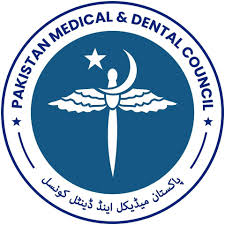Prevalence of Indices of Stress with Degree of Insomnia and Academic Performance in Undergraduate Medical Students
DOI:
https://doi.org/10.37018/DSKZ2702Keywords:
Stress, Non obese, Medical Students, Sleep quality, Academic performanceAbstract
Background: Studying medicine is quite challenging as medical students have to work hours and hours which leads to continuous psychological stress and as a result decrease in sleep duration and quality. This study aims to determine the prevalence as well as the relationship of academic stress and pattern of sleeping problems among medical students.
Subjects and Methods: In this cross-sectional study,128 non-obese medical students (18 -23 years old, BMI=18.5-24.9) are included and they are divided into 2 groups as non-stressed (K10≤19) and stressed (K10>19) medical students. We have used Kessler Psychological Distress Scale(K10), Pittsburgh Sleep Quality Index Scale (PSQI) and percentage of Professional Examination Result to assess stress, sleep quality and academic performance, respectively.
Results: PSQI scores were less in the stressed[8.5(3─17)] as compared to non-stressed [6(1─17)] subjects (p=0.000) while academic score (percentage) in stressed [70.9(59─77)] was lesser than that of non-stressed[76.7(57─86)] subjects (p=0.000).Within the non-stressed subjects,K10 scores were positively correlated to PSQI scores (rho=0.294, p=0.018) and negatively correlated to academic score (rho= -0.319, p=0.010).Similarly in the stressed subjects there was a positive correlation between K10 and PSQI scores (rho=0.435, p=0.000) and a negative correlation between K10 and academic scores( rho= -0.251, p=0.045)
Conclusion: This study suggests that both sleep quality and academic performance reduces with increase in stress among non-obese medical students.
Keywords: stress, non-obese, medical students, sleep quality, academic performance.
Downloads
Published
How to Cite
Issue
Section
License
The Journal of Fatima Jinnah Medical University follows the Attribution Creative Commons-Non commercial (CC BY-NC) license which allows the users to copy and redistribute the material in any medium or format, remix, transform and build upon the material. The users must give credit to the source and indicate, provide a link to the license, and indicate if changes were made. However, the CC By-NC license restricts the use of material for commercial purposes. For further details about the license please check the Creative Commons website. The editorial board of JFJMU strives hard for the authenticity and accuracy of the material published in the journal. However, findings and statements are views of the authors and do not necessarily represent views of the Editorial Board.

















